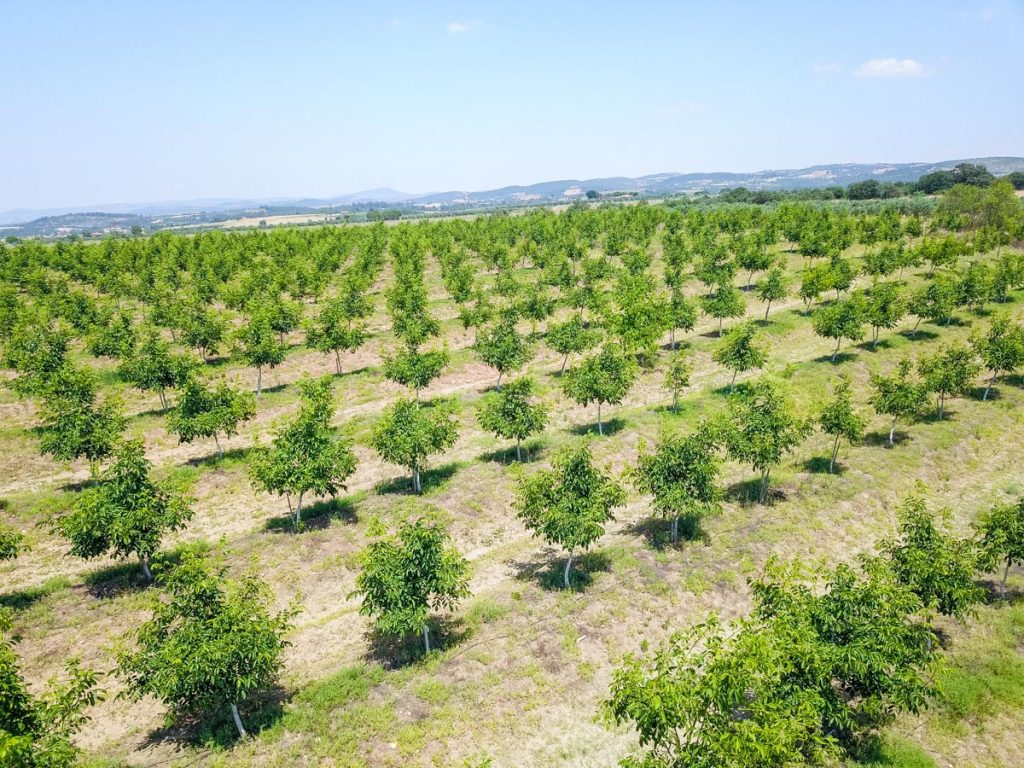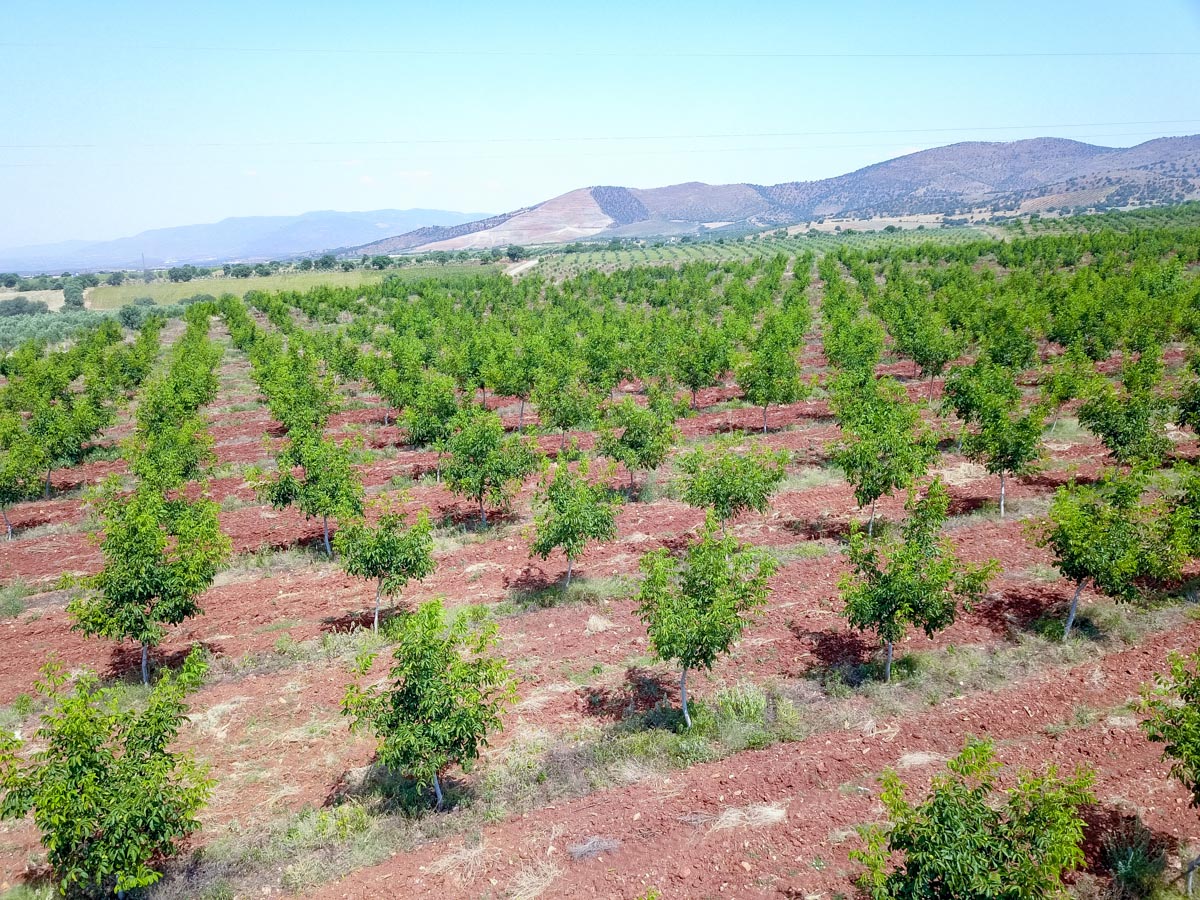5 Most Lucrative Types of Nut Trees
Nut trees have long been cherished for their delicious fruits and myriad commercial applications. From culinary delights to industrial uses, the various types of nut trees offer multiple benefits to consumers and businesses alike. As specialists in the almond and walnut cultivation market, offering farmland investment opportunities in Turkey, our job at Farmland Turkey is to stay on top of trends in the nut market. If you have ever wondered how lucrative the different types of tree nuts are, read through our guide. Our article delves into the diverse kinds of nut trees, exploring their types and the commercial value they bring.
What are the most Profitable Types of Tree Nuts?
These five nuts represent a significant portion of the global nut market, driven by their popularity, versatility, and nutritional benefits. However, other nuts such as pistachios, Brazil nuts, and macadamia nuts also contribute to the diverse and growing nut industry worldwide.
1. Almond Trees (Prunus dulcis)
Almond trees are revered for their versatile nuts, cherished as a nutritious snack and a fundamental ingredient in numerous culinary creations. Beyond their culinary appeal, almonds also boast significant commercial value due to their use in the production of almond oil, a staple in cosmetics, skincare, and even culinary applications. Moreover, almond trees are vital in agriculture, serving as pollinators for other crops. In 2023, the global almond products market will be worth $8.2628 billion. The market is estimated to reach $15.2484 billion by 2033, a CAGR of 6.3% between 2023 and 2033.
2. Walnut Trees (Juglans regia)
Walnut trees are esteemed for their rich, buttery nuts and prized for their distinct flavor and numerous health benefits. The nuts are widely used in sweet and savory dishes and walnut oil production, valued for their delicate flavor and high nutritional content. Additionally, walnut wood is highly sought after in the furniture industry, further enhancing the economic value of these trees.
The global walnut market reached a value of 8233.37 million USD in 2022 and is predicted to expand at a CAGR of 6.13%, reaching 11,074.12 million USD by 2027. Walnut farming offers the potential for profits with a 20% margin.

3. Pecan Trees (Carya illinoinensis)
Pecan trees yield delectable nuts renowned for their sweet flavor, making them a beloved ingredient in various confections and savory dishes. Pecans are consumed as a snack, in baking, in cooking, and as a topping for salads and desserts. With their high demand in the culinary world, pecans hold significant marketable value, driving a thriving industry around their cultivation and distribution. The global Raw Pecan market was valued at USD 4267.19 million in 2022 and is expected to reach USD 6119.58 million by 2028, with a CAGR of 6.19% between 2022 and 2028.
4. Hazelnut Trees (Corylus avellana)
Hazelnut trees produce flavorful nuts with a distinctive taste, often associated with chocolate and used in many desserts, spreads, and savory dishes. Hazelnuts are also employed to produce hazelnut oil, esteemed for its nutty flavor and versatility in cooking and baking. The commercial value of hazelnut trees extends beyond the culinary realm, with their wood used in furniture-making and as a renewable energy source. The global hazelnut market was valued at $428 million in 2022 and is approximated to grow to $721 million by 2029, with a CAGR of 7.7% during the forecast period.
5. Chestnut Trees (Castanea)
Chestnut trees yield hearty nuts cherished for their sweetness and creamy texture, making them popular worldwide in sweet and savory dishes. Beyond culinary applications, chestnuts are present in various traditional medicines and cosmetic products. Moreover, chestnut wood is prized for its durability and aesthetic appeal, further contributing to the commercial value of these trees. In 2023, the global chestnut market made $3.7 billion. Looking ahead, IMARC Group estimates the market will reach US$ 4.9 billion by 2032, with an annual growth rate (CAGR) of 3.22% from 2024 to 2032.

Ever Thought About Investing in Tree Nuts?
At Farmland Turkey, we excel in facilitating a seamless transition for global investors into freehold farmland ownership. As a premier managed farmland marketing company, we specialize in offering walnut, almond, and olive farmlands, providing comprehensive services from the initial sale to the final harvest.
Investing in tree nuts in Turkey is a promising venture as Turkey is one of the world’s leading producers of tree nuts, particularly hazelnuts, pistachios, walnuts, and almonds. The region’s pleasant climate and plentiful soil nutrients create excellent conditions for nut growing, ensuring high-quality yields. Turkey’s strategic location also offers access to major markets in Asia, Europe, and the Middle East, facilitating efficient distribution. Additionally, the growing global demand for healthy and natural foods has increased interest in tree nuts, making it a lucrative market with significant growth potential.
Invest in Different Types of Tree Nuts with Farmland Turkey
From almonds and walnuts to pecans and hazelnuts, the different types of nut trees provide delicious and nutritious nuts and contribute significantly to various industries, including culinary, cosmetic, and manufacturing. As consumer desire for wholesome and healthy products continues to rise, the commercial value of nut trees is expected to soar, so now is the time to invest in this burgeoning market.At Farmland Turkey, we take pride in our decade-long legacy of excellence in managed farmland sales. However, our services continue beyond farmland sales. With the added advantage of our business partners, we extend our services to provide quality processed products post-harvest. Dive deep into the world of agricultural real estate with a name you can trust: contact Farmland Turkey immediately to start your tree nut investment journey.
